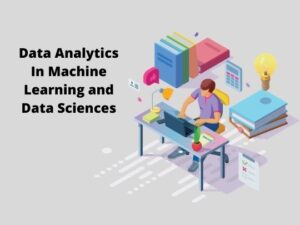Introduction
Decision-making processes are increasingly relying on data analytics, from finance and industry to healthcare and research. Professionals and researchers utilise a number of tools and languages to glean valuable insights from data. In this post, we’ll examine a few of the most popular data analytics tools, including 360DigiTMG, Python, R, and Microsoft Excel, and talk about their benefits and drawbacks in various scenarios.
Microsoft Excel:
Microsoft Excel was a spreadsheet programme that has long been used extensively in data analysis. It is widely available in most computers, has an easy-to-use interface, and can be used by a variety of people. Basic data analysis activities like filtering and sorting data, making charts and graphs, as well as carrying out easy computations are best handled by Excel.
Looking forward to becoming a Data Scientist? Check out the data science course with placement and get certified today.
Strengths:
- User-friendly interface, suitable for beginners.
- Versatile for basic data manipulation and visualization.
- Integration with other Microsoft Office tools.
Weaknesses:
- Limited capacity for handling large datasets.
- Not ideal for advanced statistical analysis or machine learning.
- Version control and collaboration can be challenging.
- 360DigiTMG offers the best data science course in bangalore to start a career in Data Science. Enroll now!
Python:
Because of its adaptability and extensive ecosystem for libraries and packages, Python has become quite popular in the field of data analytics. It is a programming language with broad applications which may be used for machine learning as well as data cleansing, analysis, and visualisation.
Strengths:
- Open-source and has a large, active community.
- Extensive libraries, including NumPy, pandas, Matplotlib, and scikit-learn.
- Scalable and capable of handling large datasets.
Weaknesses:
- Steeper learning curve for beginners without programming experience.
- Requires coding skills to perform complex data analysis tasks.
- Less intuitive for basic data manipulation compared to Excel.
- Want to learn more about data science? Enroll in this data science course training in hyderabad to do so
R:
R is a specialized programming language and environment for statistical computing and graphics. It is widely used in academia and research for its powerful statistical analysis capabilities.
Strengths:
- Designed for statistics and data analysis, making it ideal for research.
- Offers a rich ecosystem of packages for advanced statistical modeling.
- Exceptional data visualization capabilities with packages like ggplot2.
Weaknesses:
- Not as versatile as Python for general-purpose programming.
- Particularly for people without a statistical background, the learning curve can be rather high.
- Limited options for non-statistical data manipulation.
- Earn yourself a promising career in data science by enrolling in the data science training and placement in pune offered by 360DigiTMG.
Tableau:
Users may create dynamic and shared dashboards using Tableau, a potent data visualisation tool. It excels at transforming challenging datasets into understandable visualisations.
Strengths:
- User-friendly drag-and-drop interface for creating data visualizations.
- Real-time data connectivity for dynamic dashboards.
- Sharing and collaboration features.
Weaknesses:
- Limited data manipulation and analysis capabilities compared to Python or R.
- Can be costly, especially for enterprise-level solutions.
- Relies on external tools for in-depth statistical analysis.
- Data Science is a promising career option. Enroll in the Data Science Malaysia offered by 360DigiTMG to become a successful Data Scientist.
Conclusion:
The choice of data analytics tool largely depends on the specific needs of the analysis, the user’s skill set, and the scale of the project. Excel is excellent for beginners and quick, simple analyses, while Python and R offer more advanced capabilities for professionals and researchers. Tableau is perfect for data visualization, and SQL is indispensable for managing and querying databases. To be a successful data analyst, it’s essential to be proficient in multiple tools, as they can complement each other and provide a broader range of solutions to complex data challenges.
Becoming a Data Scientist is possible now with the 360DigiTMG data science course fee in chennai Enroll today.
Our Courses In Malaysia
best data science course in malaysia, machine learning course malaysia, artificial intelligence course malaysia, tableau training malaysia, data science course in kuala lumpur, data science course penang, data science course in johor, data engineering course malaysia
Navigate To:
360DigiTMG — Data Science, IR 4.0, AI, Machine Learning Training in Malaysia
Address : Level 16, 1 Sentral, Jalan Stesen Sentral 5, KL Sentral, 50740, Kuala Lumpur, Malaysia.
Phone Number: +60 19-383 1378
Email: info@360digitmg.com
Source link: What are the Best IT Companies in Malaysia
Source link: Research and Development Companies in Malaysia



